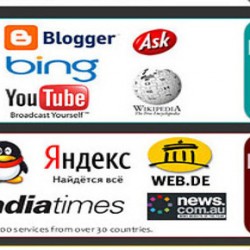Internet Neutrality and How It Works

The internet is awesome isn’t it? I mean, I’m sitting here in the United Kingdom having just spoken to people from Canada, the US and people from all over the place. I count people from many different nationalities all as friends and comrades and yet it was only 10 years ago where I’d be lucky if my social circle extended all the way to the next major town and a large part of what makes this possible is internet neutrality.
Sufficed to say, the internet has changed the world and pretty much entirely for the best.
Internet neutrality is a cornerstone of the internet but this concept is not easily understood by people outside of the internet. So you may be asking exactly, what is Internet Neutrality?
Internet Neutrality
At its heart, the idea of Internet Neutrality states that “Internet service providers and governments should treat all data on the Internet equally, not discriminating or charging differentially by user, content, site, platform, application, type of attached equipment, and modes of communication.” The term was first coined by Tim Wu in 2003 but it’s presence as a principle had been around since the dawn of the internet.
To put in more mundane terms, imagine there are four people. Persons A, B, C and D. Person’s A and D are normal people who want to send messages between each other. While person’s B and C are Last Mile – Internet Service Providers (ISP’s) that are providing person’s A and D with internet access. Person A sends a message to person D, however to do that a person A has to send to person B who then has to send it on to person C who then in turn delivers it to person D.
Despite what they say, you are paying for what you already had.
That’s commonly how the internet works; the ISP’s act like dumb pipes trying to send as much as they can as quickly as they can in order to keep the whole internet running. How does an internet that does not follow the principle of Internet Neutrality work?
Let’s go back to our Persons example, except we’ll give those people names. These persons are now Daniel, Google Fibre and Netflix. Daniel wants to watch Battlestar Galatica again for some reason and so loads up the mini-movie at the start of the reimagined Battlestar Galatica. However, Google Fibre feels like due to the large amount of Data that Netflix should have to pay it for access to their networks. With the idea that Netflix comprises around 34% of all data sent to internet customers it feels cheated.
Netflix refuses to pay, pointing out that it is being paid not only for internet access but also to upgrade and improve their service over time, so their argument makes no sense. In retaliation, Netflix is discriminated against on Google Fibre network and begin to slow down all of Netflix’s traffic. The result of this is that Daniel, who wanted to watch Battlestar Galatica (BSG) can’t because Netflix is dropping packets of data all over the place due to Google Fibre meddling.
While thankfully I don’t have to worry about GOOGLE FIBER screwing me when it comes servicing my requests for more BSG, it was only a few months ago that some customers in the US were facing this. If they were lucky, and knew about the situation, then they’d used a VPN to get around the issue (Protip: If this happens again, go pay for a decent Virtual Private Network to get around the ISP meddling, if legal of course.)
Admittedly this is an over simplification of how the internet actually works, so before we continue I’m going to define a few other terms.
Definitions
Last Mile – ISP: – A term used to refer to the broadband company you hopefully sign up to. These are the guys that give the end-user (I.e. You and Me) with internet access to use the World Wide Web.
Tier 1 Network: – If the Last Mile ISP’s can be described as the tendrils of the internet, then Tier 1 Networks are best described as the backbone of the internet. Tier 1 Networks are defined as networks that only use peering in-order to service their customers rather than using internet-transit systems.
Peering: – A term used to describe when two internet networks allow the exchange of traffic without charge or bill (So called Bill and Keep or Sender Keeps All). Which results in no one network paying for access to each other’s networks.
Transit: – A term used to describe when two internet networks enter into an agreement that involves the exchange of money, goods or services to use each-others networks.
What’s the Fuss then?
Pretty much that.
Now that we’ve defined the key terms, let’s discuss why this is an issue in the first place. For instance in the EU a new law was just signed in that made the principle of Internet Neutrality legally binding in most countries.
Well, in the US (through which most data passes through on its way to its intended destination for most purposes) Net Neutrality laws were struck down on January 14th, 2014 (http://www.theverge.com/2014/1/14/5307650/federal-court-strikes-down-net-neutrality-rules) meaning that no-one really had to follow the principle of Net Neutrality. The fuss now is that the FCC is attempting to make legislation that would formalise the dismantlement of Net Neutrality and the implementation of the so-called “Fast Lanes” for certain content producers.
Oh yes, not only can the Last Mile ISP’s negatively discriminate against content producers, they can also positively discriminate and allow them greater access to the infrastructure in order to provide content to the end user much more effectively.
To demonstrate why this is a problem, let’s use our persons example. Daniel has just had an idea for a new way of collecting and aggregating worthwhile content based on what videos you enjoy, with a much greater chance of the code finding something you’d actually want to watch. He decides to start up a new video business based off this idea called VideosForYou (VFY). The business grows over time until it’s a small but important part of the web in terms of providing content and is hosted with Level 3 Communications, a Tier 1 network provider. One day, one of his friends Vernon notices a drastic drop of quality in the videos VFY provides. The next day Level 3 sends Daniel an E-mail stating that due to the increased usage of data from VFY and Comcast not having to follow the principle of Internet Neutrality that his bills will increase.
The increase is beyond what VFY could possibly expect to give in terms of income, and so the business goes bust. Meanwhile, Youtube and other already established sites are informed much the same as VFY but are able to pay the increase and even negotiate a separate agreement to increase their speeds to their consumers.
The alternate version is that VFY begins or increases the amount of money it charges in order to provide content, making the user experience decrease just when the business is starting to build up steam.
The problem is that network discrimination that Internet Neutrality prevents, both positive and negative, preserves the ability for new business to compete on the same level as other more established businesses. Youtube and Netflix both for instance would not exist today if they could be discriminated against, the same goes for Facebook, Google and host of other websites that are a large part of the internet today.
But of course, it doesn’t stop there.
Why is it Worse in the US?

America! Home of the internet and home of the worse kind of internet companies!
In a word, monopolies. Most companies that offer Last Mile service in the US exist either as duopoly or a monopoly with either no or worse options in terms of providing normal internet access. For instance in the UK if this was a problem, there are about 20 different providers that I could switch to within a day or three and I’d have regular, consistent internet access within 2 weeks. In the US most places have a choice of Comcast or more Comcast.
On a national level, between AT&T, Comcast and Time Warner, they comprise a market share of around nearly 50 million subscribers. That’s almost 1/6 of the entire US population. If these folks say “You must pay us or we’ll discriminate against you”. Then you have to pay. You really don’t have a choice in the matter.
What makes this even worse is that the majority of the companies also produce their own content, Comcast and Time Warner both produce content aside from their purpose as dumb internet pipes meaning not only do they have an incentive to charge more or less, they also have a massive conflict of interest that pretty much assures they will at some point discriminate against third person content in some fashion.
I Didn’t Read the Article, Sum it Up in Less Than 300 Words
Internet neutrality is being dismantled and this is bad for consumers because: –
- Increased Costs, from both the ISP’s and from Internet Services such as Netflix.
- There will be a two-tiered service, one for those that can pay, and one for those who cannot.
- New innovation and creation will be stifled because after a certain point you won’t be able to afford the costs.
- It maintains the stagnant internet infrastructure that the US and most of the world relies upon, because there’s no incentive to increase capacity when you can just section off parts of it for the highest bidder.
The internet becomes less free, meaning that your choices for consuming media and other information just became smaller.
It’s bad for companies because: –
- You also have to pay more, when you didn’t have to.
- It permits and allows the monopolisation of the internet and its content towards a few people, meaning they maintain what they have.
- Any new idea you have is much easier to sell to someone, instead of taking it and making money with the idea yourself.
- You are going to get the blame for what the ISP’s do meaning you’ll lose the customers.
In short, Internet Neutrality is part of what makes the internet really rather wonderful. It’s worth fighting for, and what happens in the US sadly affects us all meaning if you care for the internet but don’t really care for the US or its politics it might be a good idea to keep it on your radar.
Hopefully this explains the issue, if you want to clarify any questions just comment below.








![[PROTOTYPE]](http://www.enthusiacs.com/wp-content/uploads/2020/03/title-104x104.jpg)


So my question for you Gmandam is, how do you stop it? How can the internet commonwealth do something about it?
Telling people is the number one objective, as it’s a issue that even people on the internet are kind of iffy about. Part of why the Pipa/Sopa protests were so effective was that the average joe that just uses the internet to search things or watch videos got blasted about it as well.
I feel that it’s unlikely to occur this time, so we’ve got to pick up the slack and tell people.
Very well done Gman! There’s just one thing…
How dare you use Google Fiber as the deplorable ISP limiting Daniel’s access to Netflix in your example! Google Fiber will be our savior when (yes, I said when, not if) Net Neutrality dies in the U.S. and all we have is Comcast. Google Fiber, please deliver us from evil, for we know not what we have done.
But I loves mes some internets and I always enjoy reading about this topic. Again, well done my friend 🙂
I was going to use BT, but I figured that Google is just better known for this sort of stuff.
Google Fiber alone isn’t the answer but it’s the start of what we need. We need competition and in Austin Texas alone 4 or 5 fiber providers have opened up just since Google announced that Austin was getting Google Fiber.
Indeed, part of the problem is that cable networks such as fiber optic tend to be monopolisitc by default because you can’t expect 20 different cables being routed to your house just to satisfy demand via competition. There’s only ever going to be one cable linked to your house for that particular requirement.
Very well done. The “Last Mile” thing is really key.
As Gman said, getting the information out there. A lot of people do understand this, even less how their internet works. Not saying people love their ISP, but they tend to see it as the thing they get with the cable and telephone package. As long as it is fast enough and they don’t get charged a bandwidth surcharge fee, they are happy.
The funny thing, like the article said, the first people to get blamed will be the content providers (which is exactly what they want, since the big boys will pay for ‘access’ shutting out the middle/small people). However, I fully expect the wolf to bite the hand that feeds it, even the likes of Google are going to get “swindled” in the end if you let the ISPs run amok.
There is a line from a sci-fi I love, “if you going to give someone a gun, make sure you know where they will point it.”
I remember that video, I liked it a lot. Really rather funny.
I liked it because it’s probably the best explanation of Net Neutrality on TV.